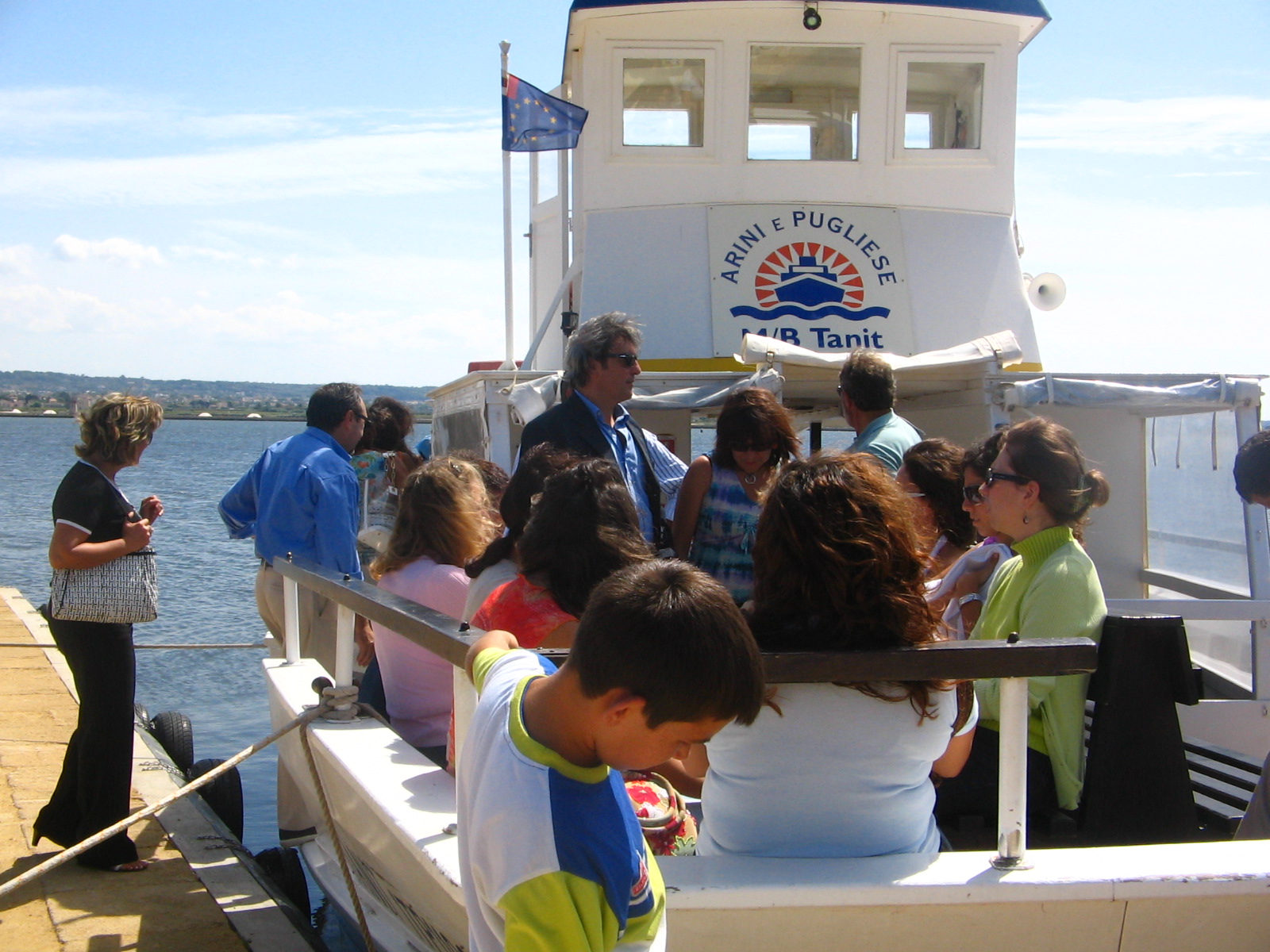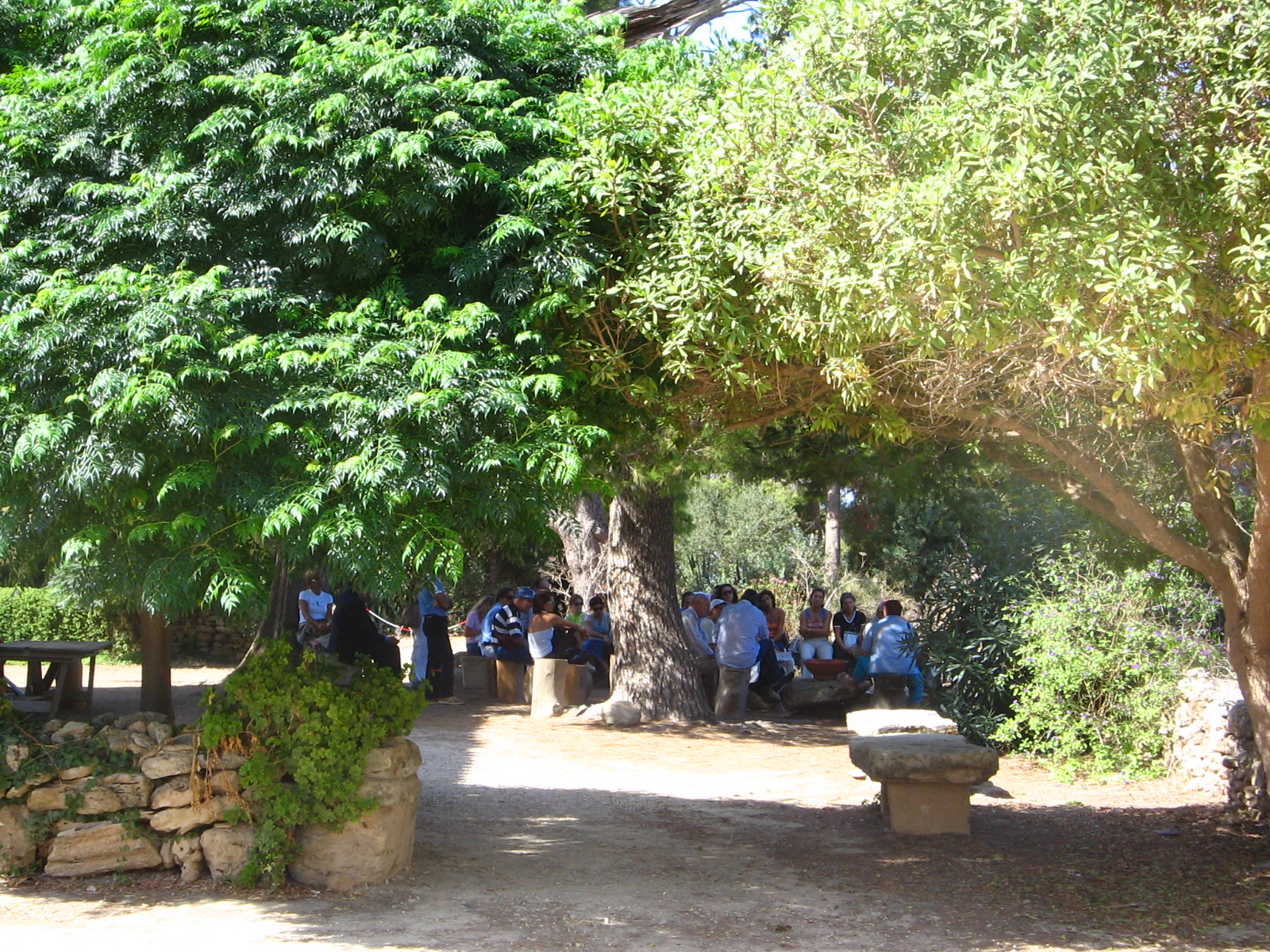|
Localism and globalism |
|
|
|
Practically, Internet, even if on the one hand it can be one of the principal means used for globalization, on the other hand it has opened in the world an enormous space of liberty and democracy, that is diametrically contrasting to the risk of the massification of the cultures, of uniformity of thought, of a fall in the forgetfulness of places which are repositories of specific popular traditions, of loss of identity by a culture and loss of the bond with its own matrixes which certainly represent unique and unrepeatable “goods” to be protected and to pass down.
From
this viewpoint, paradoxically, the challenge to accept by the localism is
a community able to find ways for
surviving
to globalism and being able to preserve own function, own specificity and
a strong identity through a variety of initiatives valorising:
|
Cultures rise, flourish and then they go down, without fully knowing the causes of this decline; the true reasons are probably the loss, at one historical moment, of the ability to continue to practice a real function in the "cultural economy" of humanity, regarded as a whole eco-system. Some cultures, as ours, typically Mediterranean, still maintain great "light-bearing" potentialities in the sense that |
||||
|
they are able to significantly go on in
giving light and contributing to the “design”, to the “program”, to
the genius of the whole humanity, however,
on condition that they
aren’t closed in themselves and in a blind narcissism. Let's not
forget the message of García Márquez in "One hundred years of
solitude": «the progenies sentenced to one hundred years of
loneliness» don't have the possibility to hand down, they are
deprived of one «second opportunity on the earth», they are
inevitably destined to disappear!!
|
||||
|
It is evident that the province of Trapani, so rich in archaeological foot-prints and in folkloric traditions, has all the characteristics to be able to offer itself on the international scenery, and with a central role in the Mediterranean, as a privileged territory for cultural tourism. From this perspective, even if it is not its primary purpose, the Itinerant Seminar “L’Immaginario |
|
|
Simbolico”, since its debut in 1995, has tried to give its contribution, also researchingways that allows the progress of the human without lacerating the "Soul of the territory", whose needs we must absolutely safeguard if we want to protect the individual and that collective well-being. |
|
| Cultural tourism and community development |
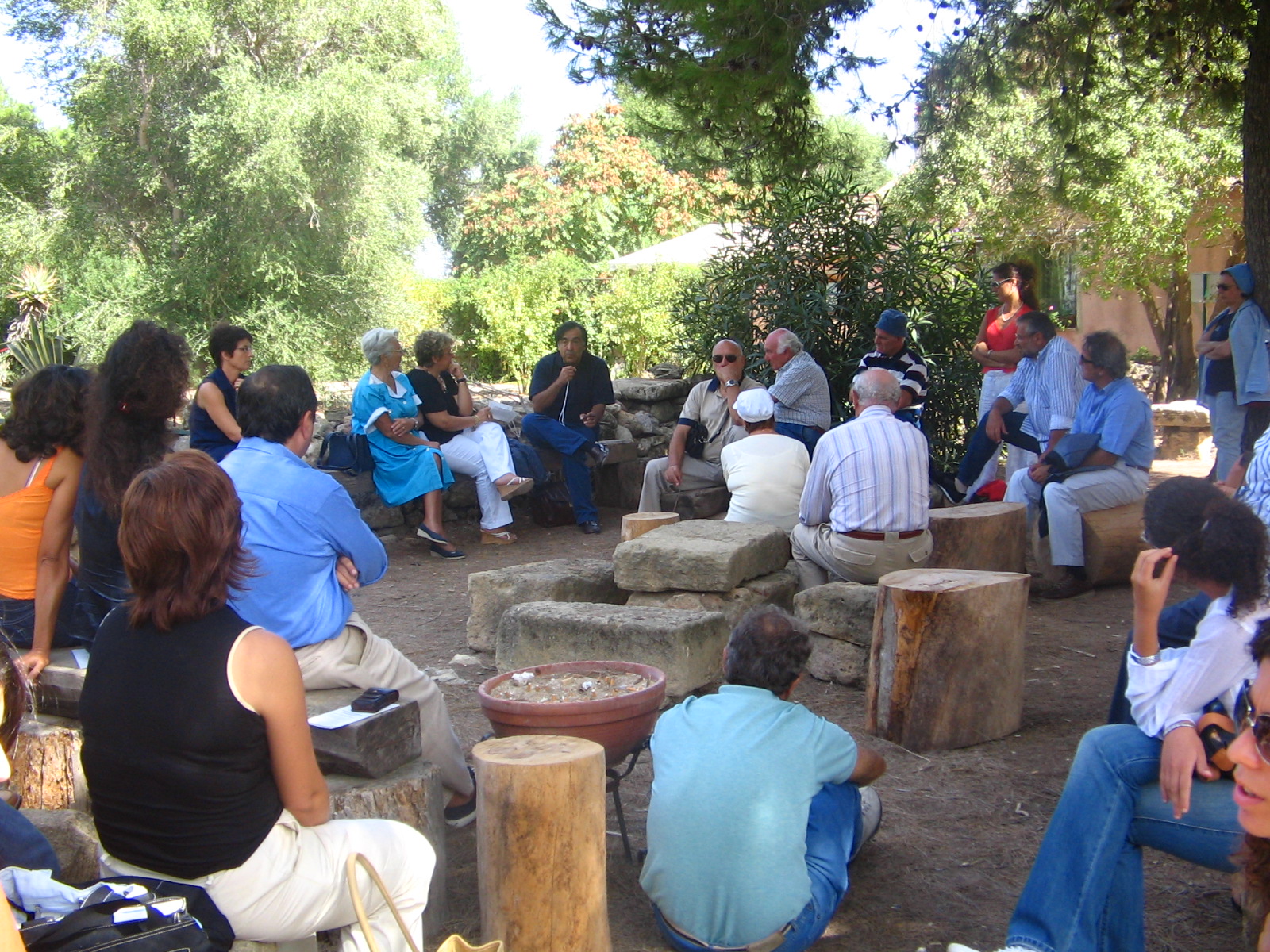 |
Every good City or Province-manager - always supposing that the common good, the social construction of the territory and the improvement of the community are in his heart more than personal interests or on behalf of party and lobbies that sustain him - in my opinion, he should greatly overlook some potentialities connected to cultural tourism. |
|
I would
begin from the less foregone fact that is the importance of the
pluralism, of the meeting with the other cultures and of the study
of the mutual matrixes really as means for growing and empowering
the local community, both because in the comparison with the Other
we have the possibility to mirror us, to narrate us and, therefore,
to acquire greater social self-awareness, both because in getting
near to the Other and in allowing it to come near us we
become protagonists of
an operation of historical course just when actually, at world level,
the fundamentalisms, the religious wars , the ethnic rejections, and
so, wildly increase. |
|
| A dynamic constructing the social realty |
|
The community development model bases on the recognition of the different potentialities and the intrinsic resources of a community and on the researching means to levitate it, paying attention that the social construction of the territory doesn't consist in prefabricating (as unfortunately it usually happens), imposing it, a territorial planning but in favouring the social changes and developments by means of |
|
|
proper
psycho-social ways for letting to mature in the community
a spontaneous and gradual being aware, for favouring its ability to
a social analysis, to invent new solutions for the attainment of all
that we can say common good; the local government unities should
only have the assignment to support and to sustain the initiatives
sprung by the collective thought. Insofar, it would necessary to change the models for
socially constructing the territory, replacing the habit to
programmatically predetermine the changes (synoptical-rational
approach) – which thinks (or act as if) a linear causality in
the social problems - with the praxis founded upon a "concertative
approach" or rather a "participated" planning so
that |
|
| Community development and empowerment of the territory |
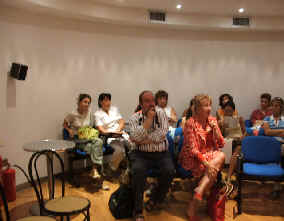 |
It is
clear that the economic model and a suitable management by means
of objectives are the focal points of the Community Development. |
|
compatibility, of the relationship costs/benefits and, besides, that the realizations are monitored during all the proceeding through some predetermined indicators in the design phase. It seems essential that the city-management or the community-management knows how to give development to a planning of activities - derived by the indications prearranged by the community - that, in employing financial and human resources, keep in mind the need as much to bring a general economic and commercial benefit as to increase the prestige of the place, through very original projects. In every case, the city-management should primarily orient itself toward those realizations that result more suitable to the traditions of the territory. |
|
|
In conclusion, in our historical moment, when the interlacement between economy and culture has more and more the tendency to stronger grow and when the budgetary evaluations owe to accompany the programmatic choices by the community through the local public institutions, it can be useful to fix some essential points to which one should usefully inspire any initiative and/or realization developed with public economic resources aimed to |
|
|
favour the
development of the local community and its empowerment: |
|
| The social construction of the territory on the sidelines of the 5° Itinerant Seminar L'IMMAGINARIO SIMBOLICO experience |
|
|
| The community has to feel itself fully involved in the iniatives |
|
Effectively, the 5° Itinerant Seminar, in comparison with the previous editions, has recorded a greater involvement by the local community which has “felt”, for so to say, more “own” the manifestation, less reserved to the experts of the sector therefore, it has taken taste to assume an active part during the various seminars, fully contributing to the elaboration of a psycho-anthropological discourse |
|
|
(according
to
model we
have developed for deepening the aspects of |
|
| The projects have to privilege a pluri-discipline and intercultural dimension |
|
Since its debut, in 1995, the Itinerant Seminar "L'Immaginario Simbolico" has tried to realize a set that facilitated the meeting among schools of thought, scientific affiliations and different cultural worlds. The fourth edition, realized in 1998, subtitled «From Mothya to Carthage - "On the Rout of the Phoenicians"», has represented the prototype of the direction toward which “the multicultural soul” of "L'Immaginario Simbolico" |
|
|
aims to develop itself. The last Itinerant Seminar, in September 2005, has particularly succeeded in further expanding the interlacement among belonging, knowledge and cultural worlds, calling to participate in the Seminar, and to conduct it, academic psychologists, psychoanalysts and group-analysts and, besides, educationists, administrators of local government unities, pedagogues, archaeologists, environmentalists, historicists, musical and theatre artists, poets. |
|
| The
necessity of a greater involvement and devolution to the Third Sector |
|
The territory has to be proper empowerizzed conferring an ampler role to the Third Sector; this for three orders of factors. First of all, because the Third Sector can represent, as Jeremy Rifkin sustains (in “La rivincita della diversità”, Il Sole-24ore , Milano, 2001, p. 7), a barricade against the flourishing «fourth sector constituted by the economy submerged of the black market and of the |
|
|
criminal culture».
Secondarily, by means of strengthening the various local working
organizations (the CSO: civil society
organization) it is favoured «the reconstitution of strong local
community» which are able to recover that values of the life and
the social life that can contrast «the levelling of the differences
caused by the globalization». Finally,
because they are, generally, non-profit associations, we have
the immediate flowing return on the whole local economy in
opposition to the typical capitalistic speculations by the private
entrepreneurial class. On the other hand, it is known that the Third
Sector «refers aspects, as a great richness of subjectivity and
effectiveness, tied to a complex of material and immaterial resources,
fielded in terms of active solidarity, of relazionality
and self-organization, of cooperative and social entrepreneurship,
which makes it as a great and diffused growing reality, also
characterized always by the occupational datum that expresses» |
|
We have
to imagine how much important can be for the whole local economy and for
the valorization of the local products a suitable planning of initiatives
whose objective is the development of cultural tourism (activity that
doesn't imply
any
echo-environmental pollution), on the understanding that it has to
take place in permanent form and not simply in a transit way and on
condition that the realization of projects is submitted to non-profit
social co-operatives: they would open above all numerous
occupational opportunities for the youngest generations.
| The young people's involvement |
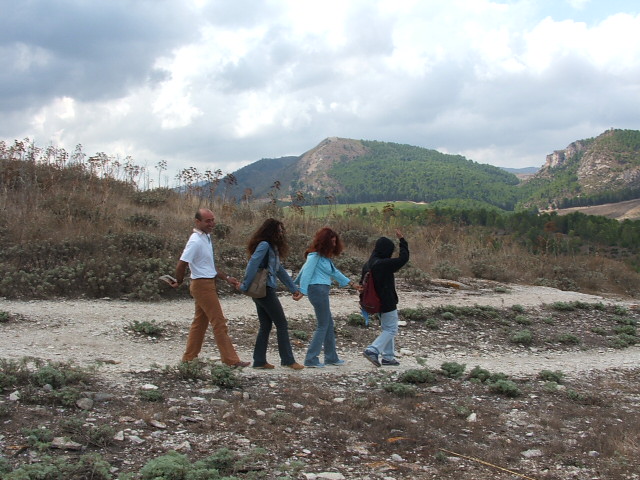 |
Today, it appears more and more difficult to find a genuine involvement and an enthusiastic participation by young people at initiatives that don't belong to their usual "world" and "myths." Probably this is due to a wholesome distrust by whole generational brackets that feel themselves as excluded, insufficiently valorized, parked waiting for crumbling jobs, depowerized because of the models and the ways of |
|
management by
senior’s
power. Sometimes,
when
the context,
as it has happened on the occasion of the 5° Itinerant Seminar,
appears genuine, sound and opened from the relational point of view, enriching from the experiential point of view
and giving equal dignity to every participant, independently of age or of
social role and so on, it can happen that the young
people participate numerous, get intense, give themselves, offer their personal contribution and
reaches even to proffer, without any remuneration, their professional
and artistic work: for being
inside, for remarking their presence in the event, for tasting
as co-protagonists a special climate, an unusual human, and
free from any generational barrier, atmosphere; all together to develop a
discourse, a thought, a feeling, an imaginary, sat ashore on the
stones, beginning from the stones that telling us of a numinous
past opens the hope of a less dark future. |
|
| The healing dimension of the cultural tourism |
|
In our day, tourism is one of the principal sources of business for the great multinationals engaged in the mass holiday-making industry. One could enumerate many forms of diversion, relax, fun, trip which are offered to the post-modern man for interrupting the frenetic rhythm of the every day life and escaping toward a more or less place away from that where one has fixed his abode. Luckily, they are rising schools that teach the art of |
|
|
travelling, and they probably have the function to give back the pleasure of the personal discovery of the places and of the people which there lives or of the civilization that once was there settled; recuperating the pleasure in pausing, reflecting, imagining according to personal times and needs, to the feeling and the state of mind of the moment; even taking notes on that one is internally experiencing, writing a travel diary or fixing on some photos the image of that, during the journey, has strongly excited or, because no, finding the inspiration to throw down some poetic rhymes. |
|
|
|
A true trip is also a run inside own interiority, own past, own present, and own future; it has a strong symbolic value, therefore, it always implies a process of personal transformation, this is the reason why every time one will return there an earlier known place won’t be never like it was before; his is the reason why Mothya, selected as the place of the eternal return for our Itinerant Seminar, every time |
|
it appears as a new place: polyhedral as the human nature, rich of mystery as the night of the times, cathartic as the Greek tragedy, restorative as the symphonic music, romantic as every place where nature and culture are married. |
|
|
The Itinerant
Seminar "L'Immaginario Simbolico" is as a drug. If,
before beginning, its numerous days seem too much, then, when it is
about its ending, one would be liked that it never had term, one
would be liked to keep on crossing together with the other
participants the remaining places that would have deserved to be
inserted in the programme. |
|
|
throughout six days, working in progress, the
group rediscovers a sense of common
comfort and unusual emotions,
perhaps for the short-circuit that it creates between the
roots of ours Historical Self and the contemporary world by means of
the powerful stimulus of the suggestive places which are worthy for
the meeting. |
|
| __________________________________________________________________________
Credits:
Comune di Marsala,
Comune di Calatafimi, Comune di Castelvetrano, Soprintendenza per i
Beni Culturali e Ambientali della Provincia di Trapani ,
|
This
writing is contemporarily published on this web-site and
on the magazine "Il Vomere"

See
some videos about 5° Seminario Itinerante
"L'IMMAGINARIO SIMBOLICO"
